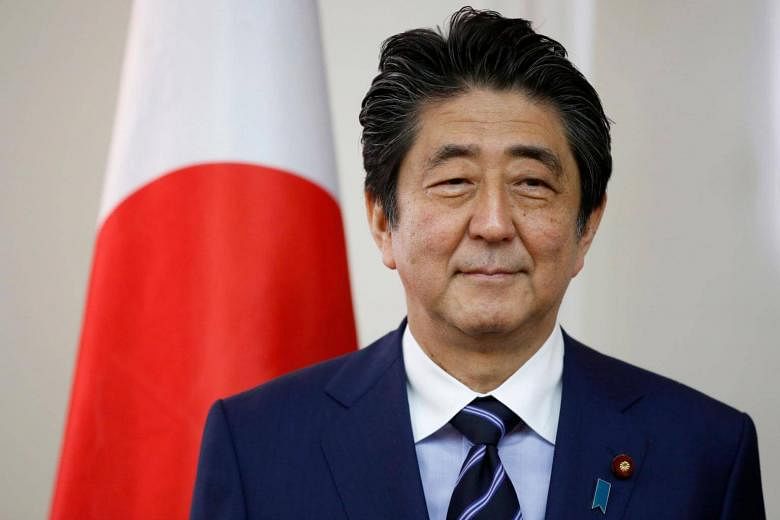TOKYO (WASHINGTON POST) - The approval rating for the Cabinet of Prime Minister Shinzo Abe rose to 42 per cent, up three percentage points from 39 per cent in the previous survey, according to a Yomiuri Shimbun poll conducted from Friday (May 18) through Sunday.
In the previous nationwide opinion poll conducted from April 20-22, the Cabinet support rate fell for the third consecutive survey.
In the latest survey, the disapproval rating for the Cabinet dropped to 47 per cent, down six percentage points from the previous survey. However, the disapproval rating remained above the approval rating for the third consecutive poll since the one conducted March 31 through April 1.
Among non-affiliated voters who do not support any particular party, the Cabinet's approval rating was 17 per cent in the survey, unchanged from the previous survey. The disapproval rating remained high at 68 per cent, though it was down from 73 per cent.
While 66 per cent of respondents said they expected the summit meeting between the United States and North Korea scheduled for June would lead to resolving issues related to the North's nuclear and missile development programmes, 29 per cent said they did not expect it would.
Regarding the issue of Japanese nationals abducted by North Korea, 60 per cent said they expected the summit meeting would lead to a resolution of the issue, while 37 per cent said they did not.
When asked which of the two options - dialogue or pressure - should be emphasised by the international community to solve North Korea's missile and nuclear development issues, 48 per cent of respondents were in favour of having dialogue, and 41 per cent opted for putting pressure on Pyongyang.
Although a simple comparison is not accurate because of differences in the wording of part of the questions, 46 per cent picked dialogue and 45 per cent opted for pressure in the previous survey conducted from April 20-22.
When it comes to Mr Abe's diplomatic moves regarding recent meetings with the United States, China and South Korea to deal with North Korean issues, 63 per cent of respondents evaluated it favourably, while 28 per cent did not.
Looking at respondents by the political party they support, those who support Mr Abe's diplomacy accounted for 80 per cent of Liberal Democratic Party (LDP) supporters, 53 per cent among non-affiliated voters, and less than 40 per cent of those who support the Constitutional Democratic Party of Japan (CDPJ).
Regarding a possible summit meeting between Japan and North Korea, 41 per cent said the meeting "should be held as soon as possible", up from 33 per cent in the March 31-April 1 survey. Still, the figure is below the rate of who said the government should carefully consider the issue at 55 per cent, though it is down from 62 per cent in the March 31-April 1 survey.
When asked who should be the next LDP president, LDP Chief Deputy Secretary-General Shinjiro Koizumi ranked highest at 32 per cent, followed by Mr Abe and former LDP Secretary General Shigeru Ishiba at 23 per cent each.
By party, the approval rating for the LDP was 37 per cent, unchanged from the previous survey, while that of the CDPJ was 7 per cent, down from 10 per cent. Only 2 per cent of respondents said they support the Democratic Party for the People, which was inaugurated this month. Forty-two per cent said they did not support any particular party, up from 40 per cent in the previous survey.
The survey was conducted on 919 households with fixed line phones and 1,184 mobile phone users with eligible voters aged 18 or older, using a random digit dialling method. Of them, 1,120 gave valid answers, with 562 on fixed lines and 558 people on mobile phones.

